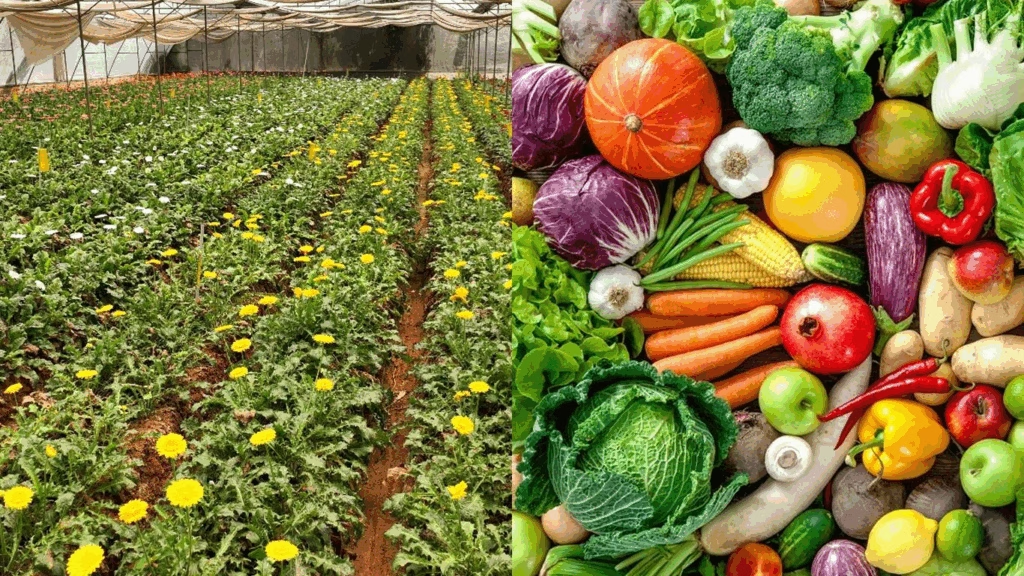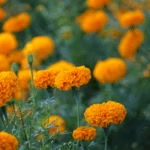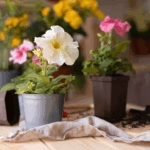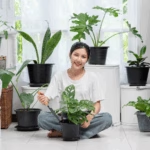Introduction
Organic gardening at home is more than just a hobby—it’s a lifestyle. By growing vegetables, herbs, and flowers without synthetic chemicals, you ensure healthier food, reduce your environmental footprint, and create a sustainable green space.
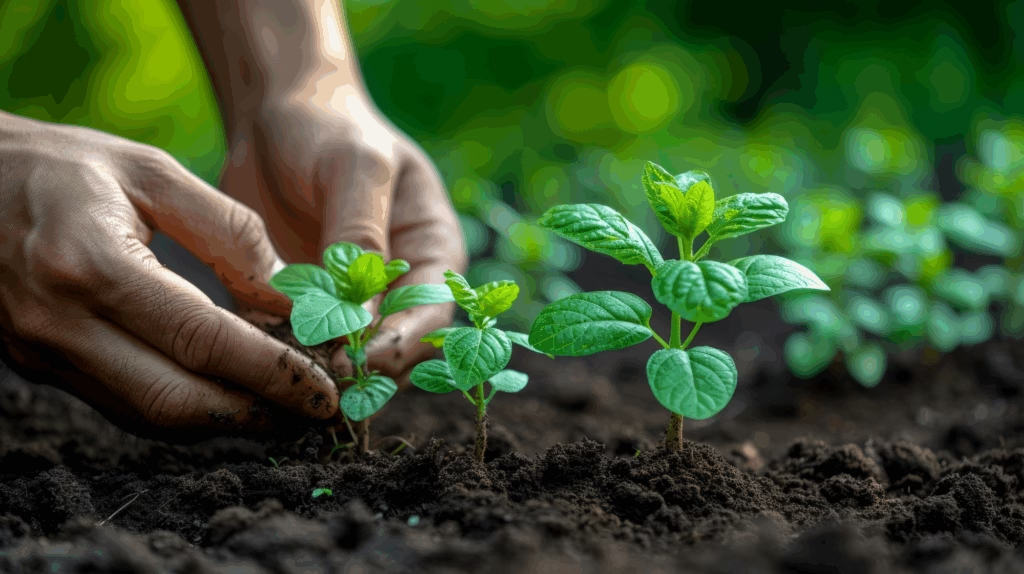
According to the Organic Trade Association (2024), more households are adopting organic practices, not only for food safety but also for the environmental benefits. The good news is that you don’t need a large farm to start—your backyard, balcony, or even kitchen windowsill can become an organic oasis.
In this guide, we’ll explore simple organic gardening techniques that work—practical, beginner-friendly, and proven by professional growers.
1. Build Healthy Organic Soil
Soil is the foundation of every garden. Healthy soil = healthy plants. Instead of relying on chemical fertilizers, focus on natural enrichment.
- Add compost made from kitchen scraps and garden waste.
- Mix in vermicompost (worm castings) for rich nutrients.
- Use green manure plants like clover to boost soil fertility.
Check our full guide on organic farming methods for more soil-care techniques.
2. Start with Organic Seeds
Organic gardening begins with seeds. Always choose certified organic, untreated, and non-GMO seeds.
Great options for home gardens include:
- Vegetables: tomatoes, beans, spinach, onions.
- Herbs: basil, coriander, mint.
- Flowers: marigolds, nasturtiums.
For beginners, try our detailed guide on onion seeds for planting.
3. Compost at Home
Composting is the easiest way to recycle waste into natural fertilizer.
- Use a bin or pit for kitchen scraps (vegetable peels, fruit waste, coffee grounds).
- Balance “greens” (wet waste) with “browns” (dry leaves, cardboard).
- Turn the pile weekly for aeration.
In 2–3 months, you’ll have nutrient-rich compost for your garden.
4. Practice Companion Planting
Nature has its own pest control system. By planting crops together, you can boost yields and reduce pest problems.
- Basil + Tomatoes → repels pests, enhances flavor.
- Carrots + Onions → onions deter carrot flies.
- Marigolds → protect against nematodes and aphids.
Companion planting makes your home garden more resilient and productive.
5. Use Natural Fertilizers
Instead of synthetic options, use organic fertilizers:
- Cow dung manure
- Bone meal and neem cake
- Liquid fertilizers like compost tea or seaweed extract
These slowly release nutrients, improving soil structure and long-term fertility.
6. Water the Right Way
Watering can make or break your garden. Professionals suggest:
- Water deeply 2–3 times a week instead of shallow, daily watering.
- Use drip irrigation or self-watering pots for efficiency.
- Collect rainwater for chemical-free hydration.
A study by Texas A&M University shows that drip irrigation saves 30–50% water while improving yields.
7. Control Pests Naturally
Home gardens often attract aphids, mealybugs, and caterpillars. Instead of chemicals:
- Spray neem oil or soap solution.
- Make a garlic-chili spray for pests.
- Attract ladybugs and lacewings (natural predators).
For soil-free pest management, explore hydroponic farming.
8. Mulch for Healthy Plants
Cover your soil with organic mulch such as straw, dried leaves, or coconut husk. Mulching helps:
- Lock in moisture
- Prevent weeds
- Maintain soil temperature
- Feed the soil as it decomposes
9. Harvest Smartly
Harvesting at the right time ensures better nutrition and continuous production.
- Pick leafy greens regularly to encourage new growth.
- Harvest beans and peas young for better taste.
- Collect herbs just before flowering for maximum flavor.
10. Keep Learning and Observing
Organic gardening is about patience and observation. Keep a gardening journal to track planting dates, fertilizer use, pest outbreaks, and harvests. Over time, you’ll refine your methods and grow healthier crops.
Conclusion
Starting organic gardening at home doesn’t require complex tools or techniques. With healthy soil, organic seeds, composting, natural fertilizers, and eco-friendly pest control, you can grow fresh vegetables and herbs right where you live.
Not only will you enjoy tastier, chemical-free produce, but you’ll also contribute to a more sustainable future

